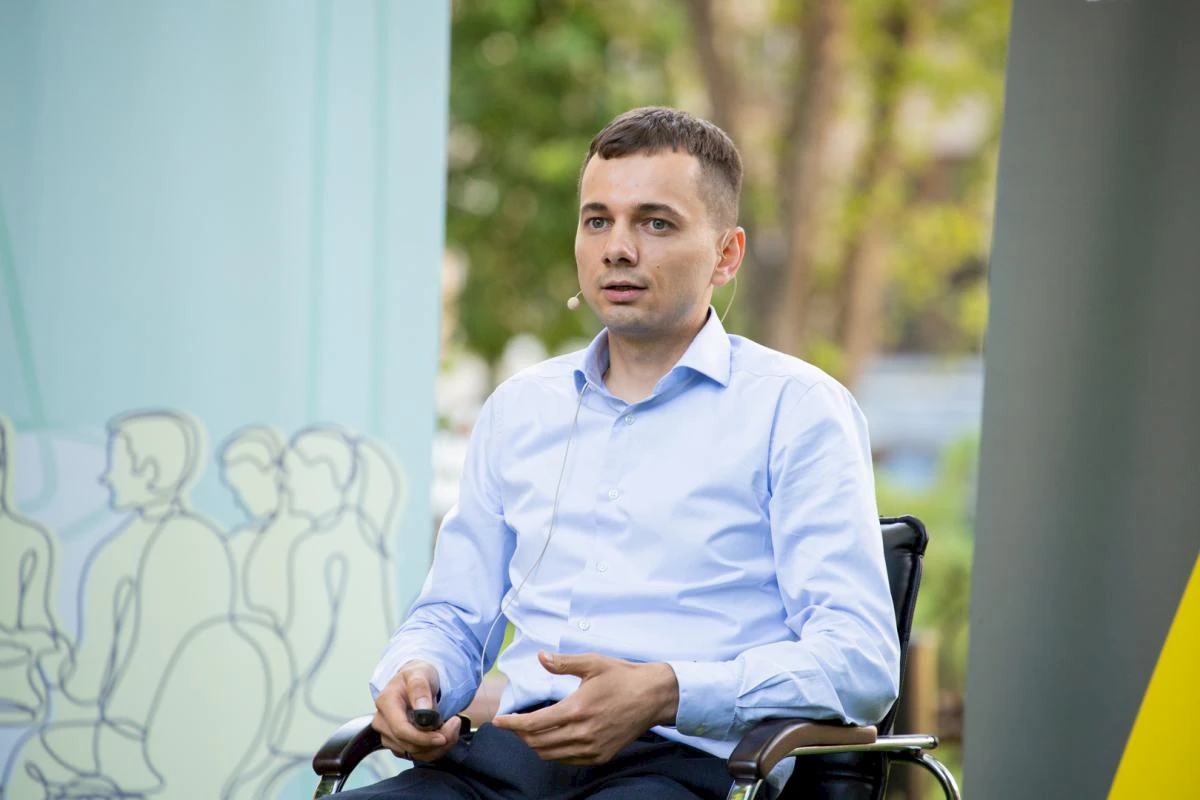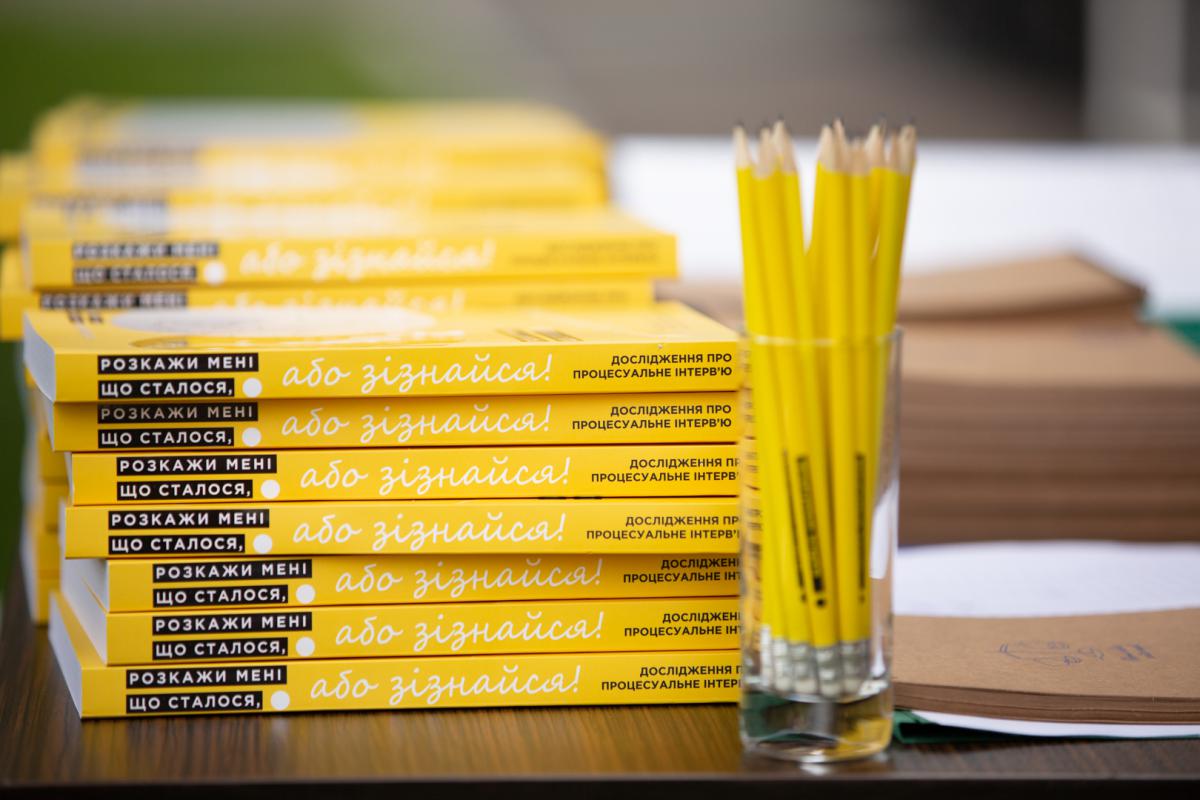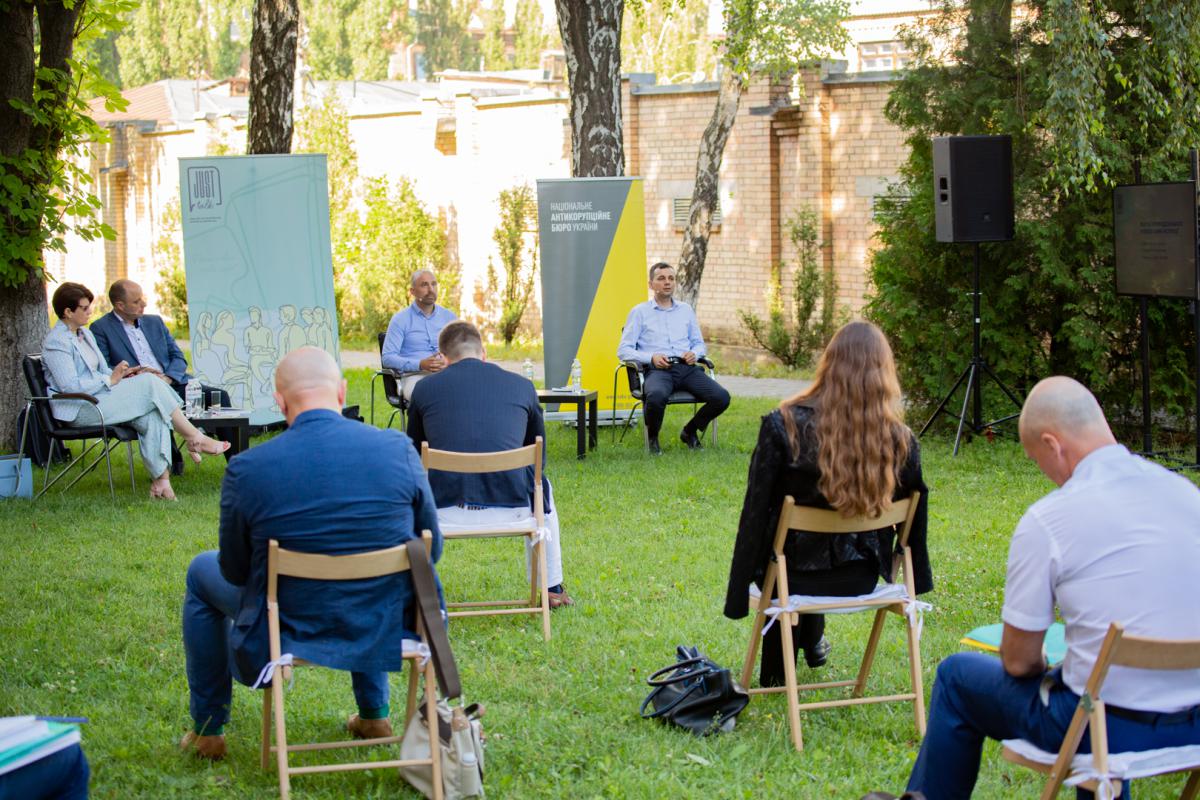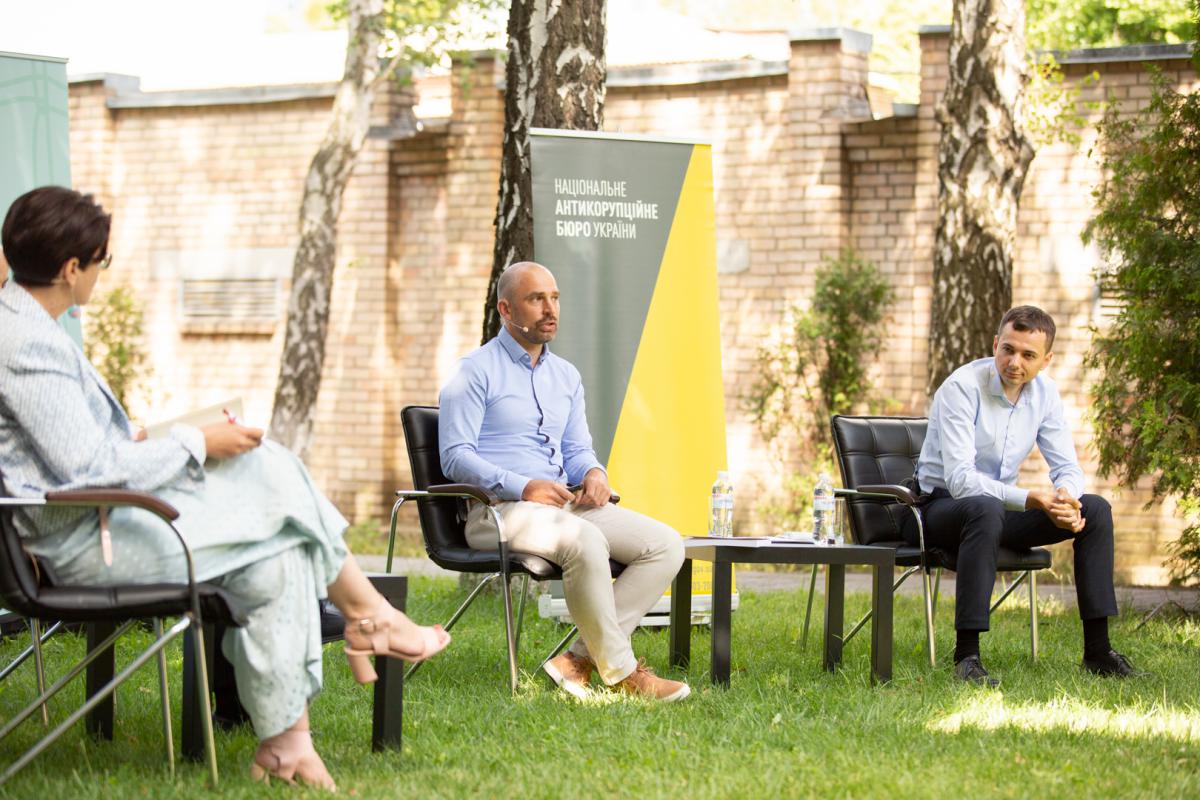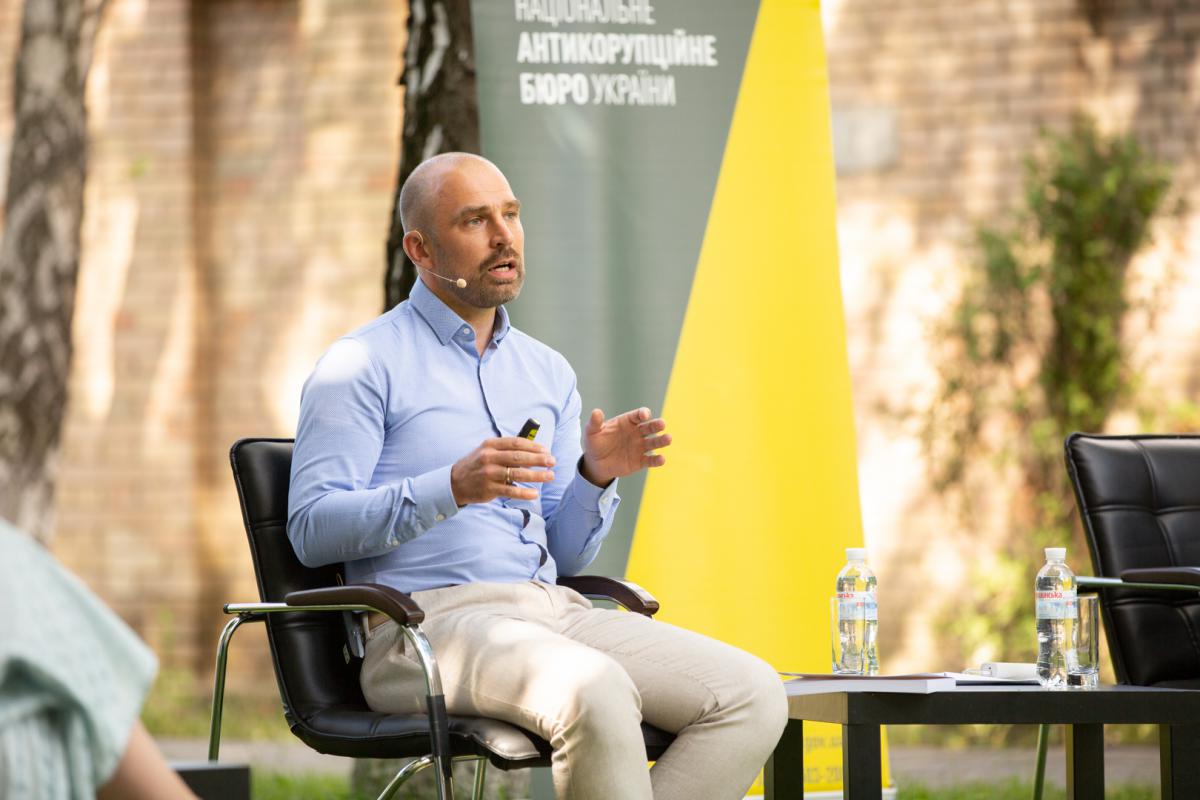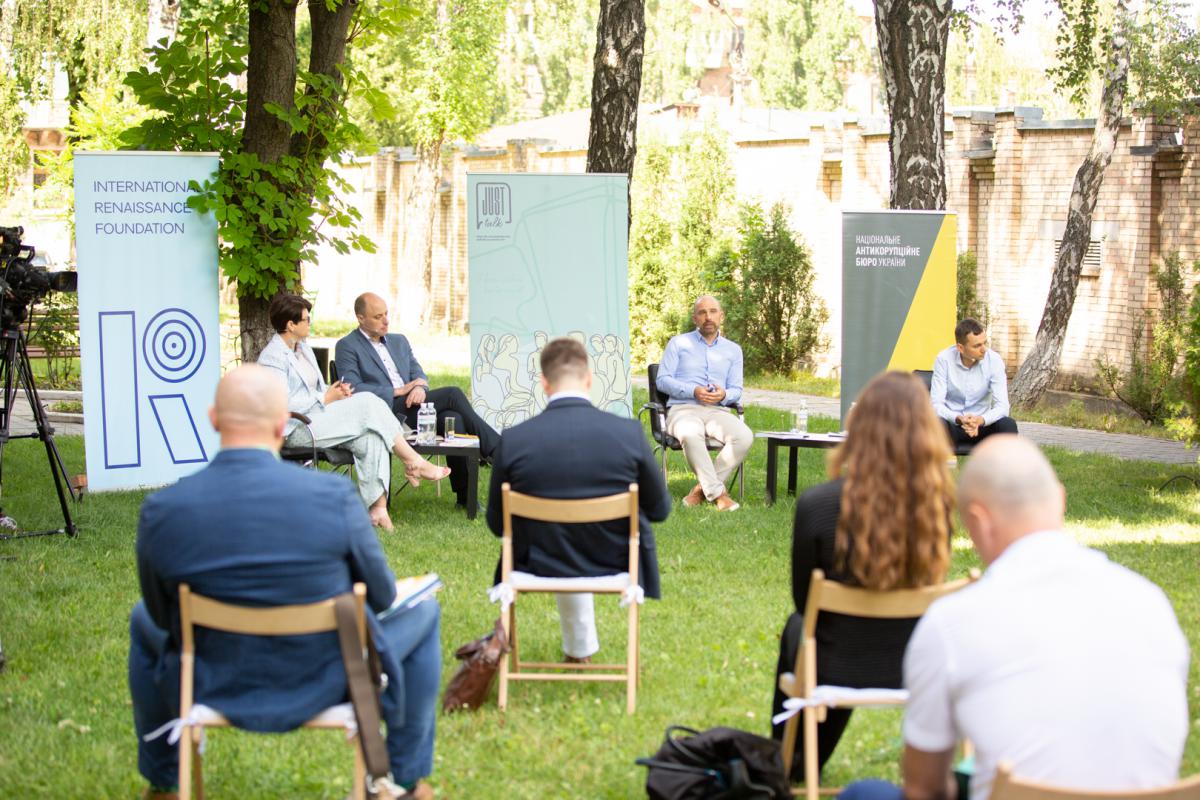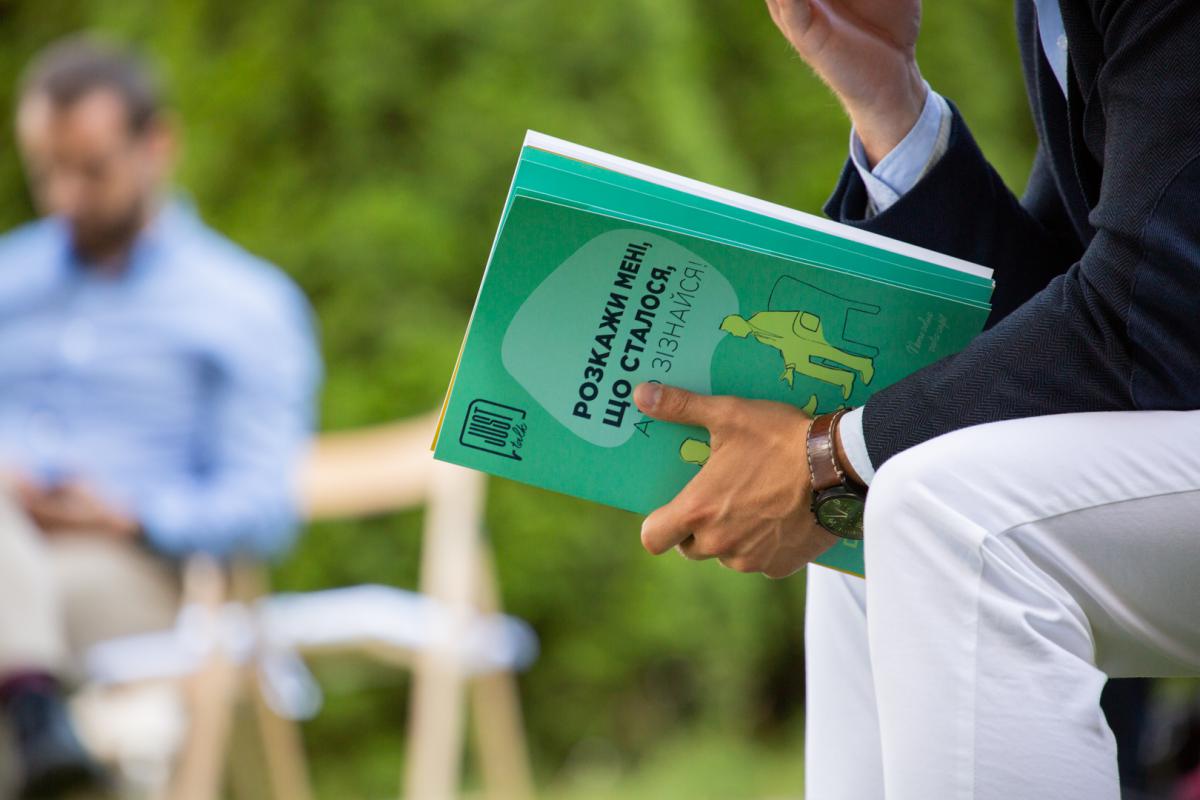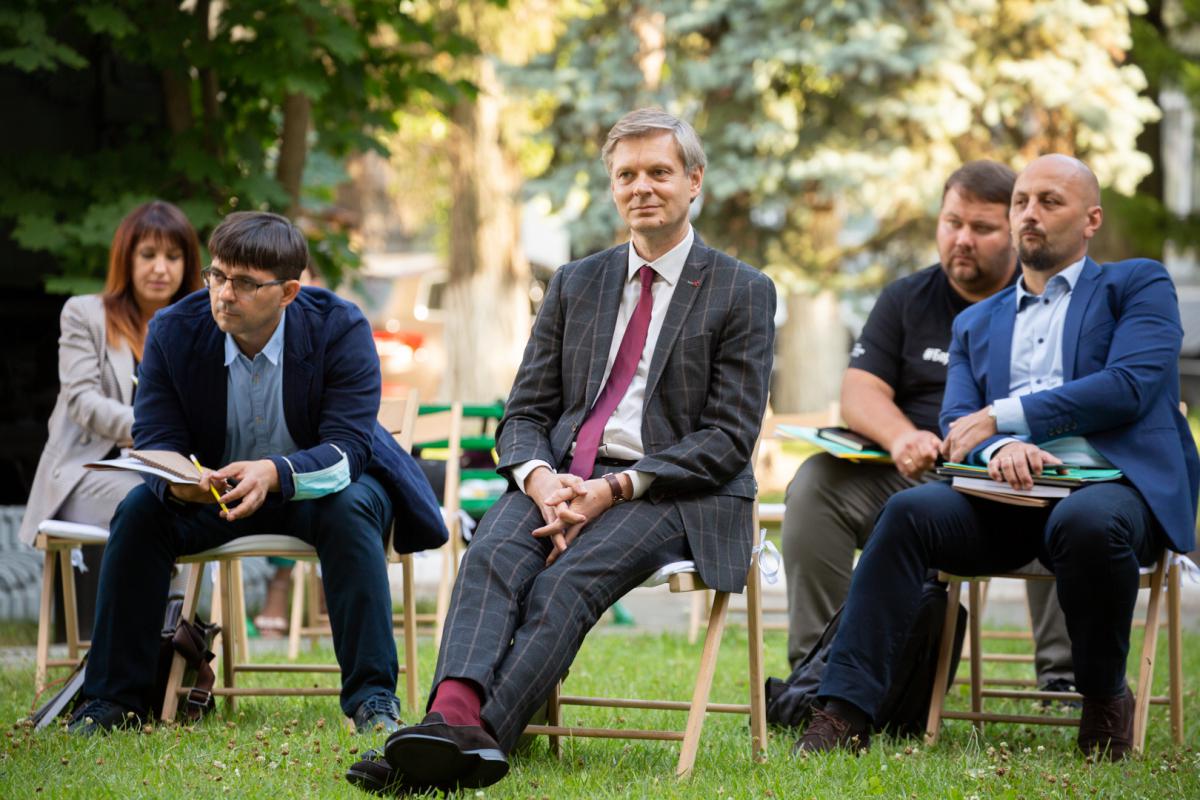Investigative interviewing in Ukraine: first results
In top-corruption investigations, the NABU Detectives face with challenges that need new solutions. Being a provider of anti-corruption reform, the National Bureau implements an innovative approach to interrogation — investigative interviewing.
The Deputy Head of the Detective Department Taras Filonenko introduced the first results during a public discussion at the National Bureau, tool place on July 9, 2020. The event was initiated by the International Renaissance Foundation, and brought together representatives of anti-corruption bodies, investigators, prosecutors, lawyers, scientists and experts.
“26 Detectives and five Heads of Detective Units passed a 5-day training. Today they use an investigative interviewing in the investigations. The draft forms of interrogation plan, checklist of readiness and evaluation of interrogation results were developed. During the monthly meetings, the participants of the training exchange experiences on best practices in the use of investigative interviewing”, Taras said.
He also stressed that a team of investigative interviewing mentors was formed at NABU. They develop investigative interviewing standards adapted to the national legislation that will include best practices, remote interrogation, arrangement of interrogation rooms, recording, etc.
During the discussion, the participants talked about the issues of interrogation, foreign experience, as well as the need to develop a national strategy for the implementation of the investigative interviewing in Ukraine.
Andriy Orlean, the Head of the Human Rights and Justice Programme of the Expert Center for Human Rights, presented the results of focus group research among the NABU Detectives, the investigators of National Police and the State Bureau of Investigation. 61% of respondents believe that only an interrogation related to obtaining a confession is successful. 17% of investigators believe that the suspect should be under pressure, which contributes to the goal of interrogation. 15% think that showing respect to the suspect only harms the interrogation. In addition, the results showed a tendency to devalue the interrogation in the eyes of investigators.
“Almost half of the investigators (49%) believe that the interrogation lost its significance during the pre-trial investigation due to the impossibility of using the testimony as evidence in court. During the interrogation, the investigator is simply trying to confirm the version he or she has already had”, Andriy Orlean said.
Yuriy Belousov, the Head of the Department of the Prosecutor General's Office, talked about the foreign models of investigative interviewing (classic, hybrid and specialized). He also announced a generalized model, which is described in detail in the study “Tell me what happened, or Confess!”
“The tactics of the investigative interviewing are a sincere attempt to find out objectively and without prejudice what happened. The aim is to get not a confession, but an information about the circumstances of the crime. It is important to make an interview plan, to arrange the room, to establish contact with the person. In case of poor preparing to the interrogation the probability of using pressure or even violence by the investigator increases,” Yuriy Belousov stressed.
The participants of the discussion agreed that the implementation of investigative interviewing in Ukraine might last few years. However, even small steps will lead us to this goal.
